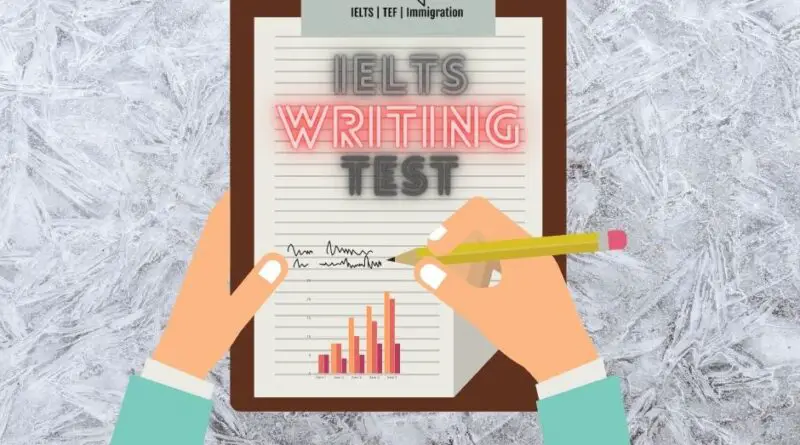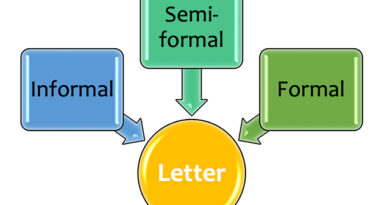IELTS Writing Test Beginners Guide – Pattern & Tips
In this article, we will discuss about the types of IELTS Writing, exam patterns and some most important tips to get band 7+ in the Writing section.
After all, you may be good at writing Facebook stories but is it enough?
In reality, it’s quite a mammoth task to get band 7+ in IELTS Writing test.
IELTS Writing Test Pattern
The exam is broadly classified into two categories :
- IELTS Writing Academic
- IELTS Writing General Training

Both test categories are further divided into two tasks – Task 1 & Task 2.
In Academic Writing Task 1, the candidates need to describe the information available in the form of a line graph, bar chart, table, pie chart or diagram. They need to summarise the information in 150 words. In Task 2, the candidates need to write an essay in response to a point of view, problem or argument. The minimum word limit for this task is 250 words.
The General Training Writing is also further divided into similar two tasks. But the real difference lies in Task 1, where the candidates are asked to write a letter requesting information or explaining a situation. The Task 2 is an essay just like the IELTS Academic version. The minimum word limit for both the tasks is 150 & 250 words respectively.
Remember, Task 2 contributes twice as much as Task 1 in both IELTS versions. So, you should be thorough with Essay Writing.
Assessment criteria
The assessment of the IELTS Writing exam is based on the following four factors:
1) Answering the question
The extent to which a candidate has addressed various parts of the question and the level of detail in which the information has been summarised will both be evaluated by the examiner (examples include accurate representation of charts, trends, main features, and detailed essay ideas/arguments, etc.).
2) Coherence & Cohesion
Instead of merely being a collection of disconnected sentences, your response should have a structure. To arrange the information logically, you must utilise sequencers, linking words, and substitution. (For instance, compose a clear response using paragraphs, with one primary theme each paragraph.)
3) Vocabulary
The examiner give special emphasis on the range of vocabulary used by a candidate. Any of the US or UK English vocabulary can be used to demonstrate paraphrasing, but it should be consistent with the type of writing.
4) Grammar & Accuracy
A candidate is judged on how accurately they apply a variety of grammatical structures in the tasks. Using complicated constructions with subordinate clauses rather than merely using short, simple phrases will help you achieve high band scores. Punctuation is a crucial component of grammar and is evaluated as such.
Basic tips to get band 7+ in the IELTS writing test
1) Timing
- IELTS Writing exam has a total duration of 60 minutes.
- Allocate about 20-25 minutes for Task 1 and 35-40 minutes for Task 2.
- As Task 2 is worth more band scores than Task 1; you should first complete Task 2
- Spend the last remaining minutes to check for any spelling or grammatical errors before submission.
- Practice writing with a clock under strict exam conditions, and stick to the 1 hour time limit.
2) Planning
- Make a brief layout of your response to the task.
- You can use question sheet to write your plan.
- Spending couple of minutes on a plan will produce more logically structured response and in other words, increase coherence.
3) Question response
- Read the task questions carefully.
- Make sure you write a relevant answer and you stick to what has been asked.
- Read the question statement several times while writing your answer to generate detailed arguments.
- Address all parts of the question.
4) Paragraph structure
- Task 1 should usually contain at least 3-4 paragraphs.
- Task 2 should usually contain at least 4-5 paragraphs.
- Leave a line blank between two adjacent paragraphs so as to clearly mark the separation between ideas.
- Use complete sentences and avoid using slangs – notes or bullet points are penalised.
5) Length
- The minimum words for each task are clearly defined by the organisations conducting IELTS, you will be penalised for not writing the minimum number of words.
- While practising, you can get an overall judgement of approximately how long a written response of 150 or 250 words is.
- Do not write question statement on the answer sheet. It is not counted under the prescribed word limit.
- Writing 200 and 300 words are ideal for Task 1 & Task 2 respectively.
Writing Tips for Academic Task 1
- A candidate has to describe the information contained in a table, pie chart, diagram or a bar/line graph.
- In case of diagram, you may be required to illustrate the stages in a process or how something works.
- It may contain more than one table, chart, graph or diagram.
- Always try to write down the main features and explain the trends, summarise the content logically.
- Also mention comparisons, connections, and stark differences between different scenarios.
- You must use a formal style of writing.
- Look carefully to see whether the data provided is in percentages, thousands, billions etc.
Writing Tips for Academic/GT Task 2
- Task 2 needs more planning and brainstorming as it is longer and carries more weight than Task 1.
- A candidate has to present his argument, give his opinion or describe a cause and solution for something.
- Your introductory paragraph should present an outline of your response.
- Your main body paragraphs should provide detailed explanation on your ideas, covering one core idea in each paragraph.
- Above all, don’t forget to complement your idea with a suitable example.
- Be specific to the information required according to question statement, avoid going off on a tangent.
Final Thoughts
Among the four test components, the writing task is the most difficult. To achieve a band score of seven or above, you must practise frequently.
Make it a practise to read newspaper editorials before taking the IELTS Writing test. This will greatly aid you in organising your thoughts and thus enhancing your vocabulary.
Wish you the best of luck with your exam.
Happy learning!!



![as happy as Larry – IELTS Speaking/Writing Vocabulary Word List [PDF]](https://cictalks.com/wp-content/uploads/2021/10/as-happy-as-Larry-–-IELTS-SpeakingWriting-Vocabulary-Word-List-PDF-390x205.png)
![Golden Handshake - IELTS Speaking/Writing Vocabulary Word List [PDF]](https://cictalks.com/wp-content/uploads/2021/10/IELTS-SpeakingWriting-Vocabulary-golden-handshake-390x205.png)
